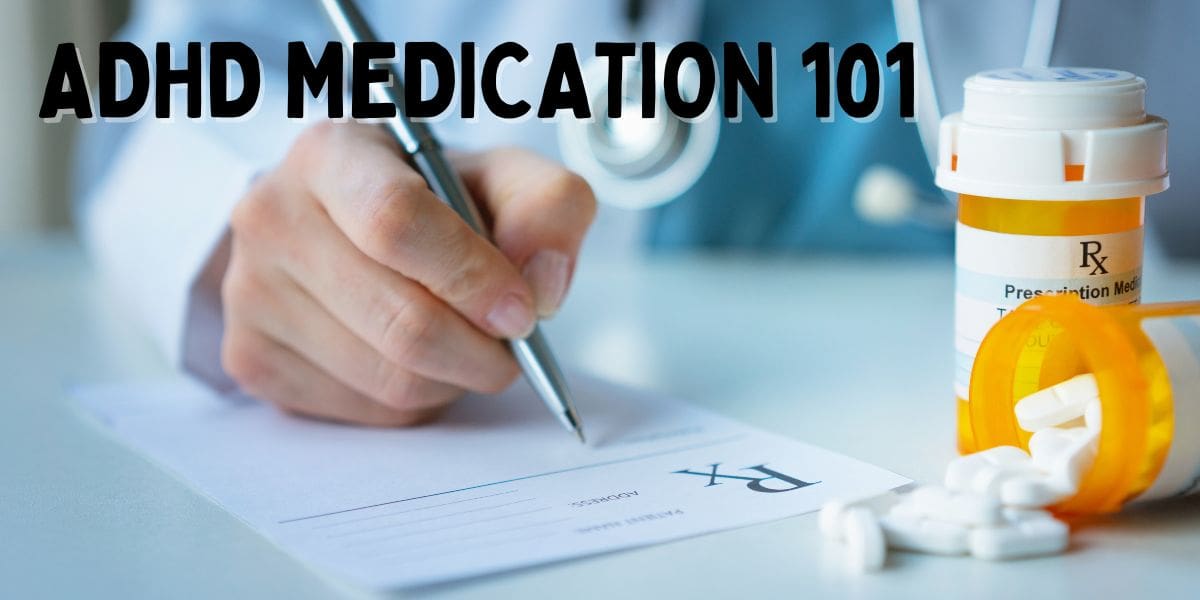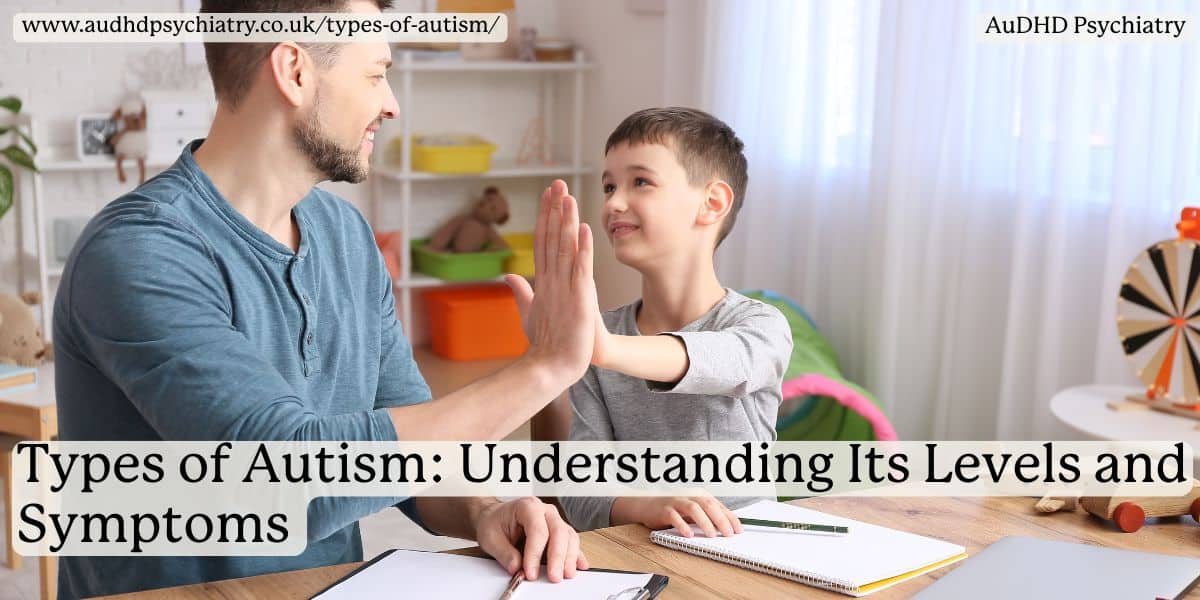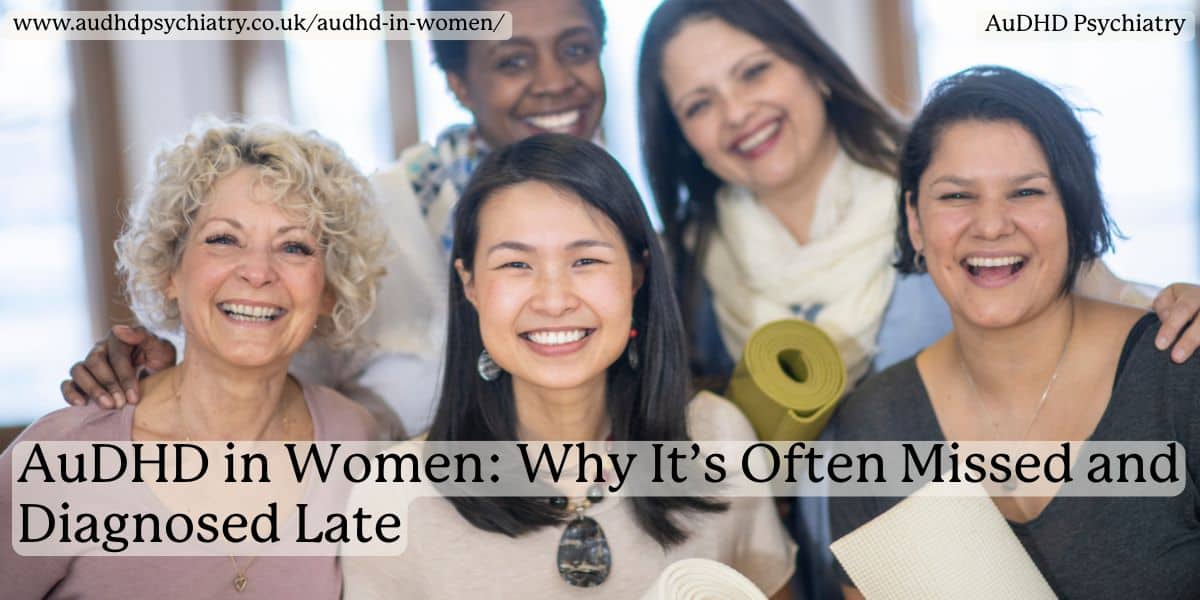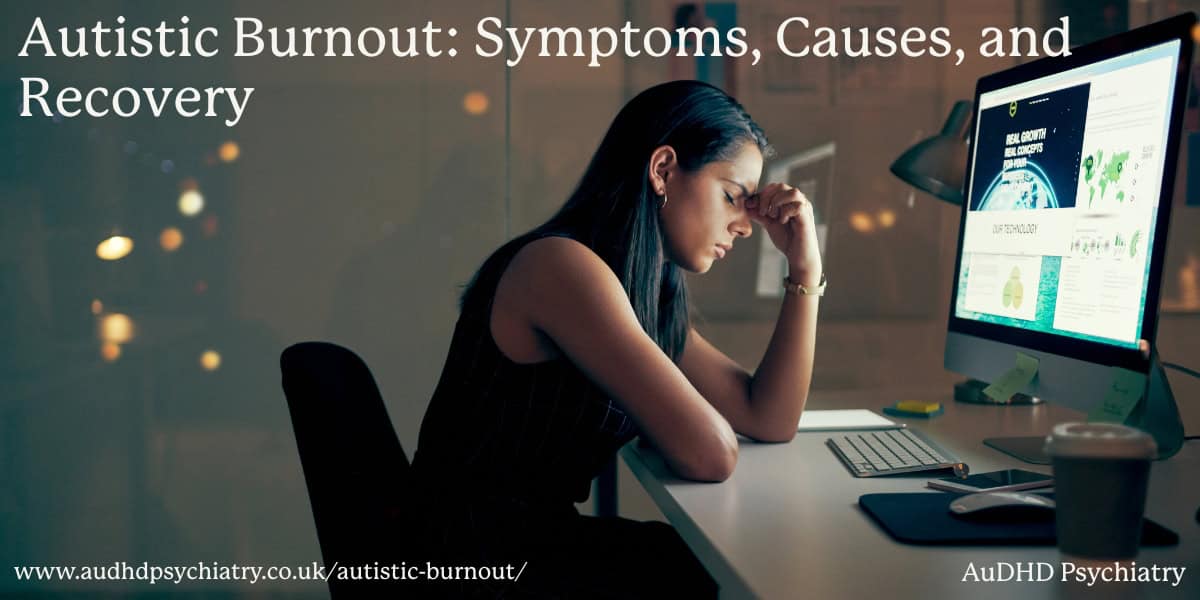
Struggling to concentrate, stay organised, or manage emotions? You’re not alone, and finding the right support and treatment can help.
ADHD medications like methylphenidate (Ritalin) and lisdexamfetamine (Elvanse) are often the first-line treatment for managing ADHD symptoms in both children and adults. These medications can improve attention, reduce impulsivity, and help regulate emotions. However, choosing the right one isn’t always straightforward.
There are different types of ADHD medication, from fast-acting stimulants to nonstimulants like atomoxetine, each with its own benefits, risks, and side effects. Your ideal treatment will depend on your symptoms, medical history, and how your body responds to different compounds.
This guide covers everything you need to know: how ADHD medication works, what to expect when starting treatment, and how to work with your healthcare provider to find the best options that align with your needs. Whether you’re looking into ADHD treatment for adults or supporting a child through diagnosis, we’ll help you navigate the options with confidence.
What Is ADHD Medication?
Stimulants vs. Non-Stimulants: The Basics
ADHD medications are broadly categorised into two main types: stimulants and non-stimulants. Stimulants, such as methylphenidate (e.g., Ritalin, Concerta) and amphetamines (e.g., Adderall, Vyvanse), are often the first-line treatments for ADHD.
They increase neurotransmitter levels in the brain, particularly those of dopamine and norepinephrine, which play key roles in attention and executive functioning. Non-stimulant medications, including atomoxetine (Strattera), guanfacine (Intuniv), and clonidine (Kapvay), offer alternatives for individuals who do not respond well to stimulants or those who may experience adverse effects.
How ADHD Medication Works in the Brain
ADHD is associated with dysregulation of neurotransmitters, particularly dopamine and norepinephrine, which affect attention, impulse control, and activity levels. Stimulant medications enhance the activity of these neurotransmitters by blocking their reuptake or increasing their release, thereby improving communication between neurons.
This leads to better focus, reduced impulsivity, and improved executive functioning. Non-stimulant medications, on the other hand, primarily target norepinephrine pathways and may also affect other neurotransmitter systems, contributing to symptom relief.
Why Medication Is Often the First-Line Treatment
Medication is frequently considered the first-line treatment for ADHD due to its efficacy in reducing core symptoms. Clinical guidelines, for example those from the National Institute for Health and Care Excellence (NICE) in the UK, recommend pharmacological treatment, particularly stimulants, as an initial approach for individuals with moderate to severe ADHD.
Medication can lead to significant improvements in attention, hyperactivity, and impulsivity, which in turn enhance academic performance, work productivity, and social relationships. However, treatment plans should be individualised, taking into account the patient’s age, symptom severity, comorbid conditions, and personal preferences.
Stimulant Medications for ADHD
What You Should Know About Stimulants
Stimulant medications remain the primary form of medication prescribed for managing ADHD symptoms and have been extensively studied for their efficacy and safety. They are known to produce rapid improvements in attention span, impulse control, and hyperactivity levels.
However, they may also cause side effects such as decreased appetite, insomnia, increased heart rate, and elevated blood pressure. Regular monitoring performed by a healthcare provider is essential to manage these potential adverse effects.
Common Types of Stimulants
- Amphetamines: This class includes medications like Adderall (mixed amphetamine salts) and Vyvanse (lisdexamfetamine). Amphetamines help increase the release of dopamine and norepinephrine in the brain, enhancing alertness and focus.
- Methylphenidates: Examples include Ritalin, Concerta, and Focalin. These medications primarily inhibit the reuptake of dopamine and norepinephrine, prolonging their action in the synaptic cleft.
Short-Acting Medications vs. Long-Acting Options
Stimulants are available in both short-acting and long-acting formulations. Short-acting stimulants typically last 3 to 6 hours and may require multiple doses each day. Long-acting formulations, such as Concerta and Vyvanse, can provide symptom control for up to 12 hours, offering the convenience of once-daily dosing and potentially reducing the risk of misuse.
The choice between short-acting and long-acting stimulants depends on individual needs, lifestyle, and how the medication is metabolised.
Side Effects of Stimulant Medications
Common side effects of stimulant medications include appetite suppression, weight loss, sleep disturbances, and increased anxiety. Some individuals may also experience elevated heart rate or blood pressure. These side effects are manageable and may diminish over time or with dosage adjustments. It’s important to communicate any adverse effects to your healthcare provider to ensure optimal treatment.
Are Stimulants Addictive?
When used as prescribed under medical supervision, stimulant medications have a low risk of addiction. However, there is potential for misuse, particularly among individuals without ADHD who use these medications for cognitive enhancement or recreational purposes. Proper assessment, prescription, and monitoring are crucial to minimise the risk of dependency.
Who Should or Shouldn’t Use Them?
Stimulant medications are generally suitable for individuals with ADHD who do not have contraindications such as certain heart conditions, severe anxiety disorders, or a history of substance misuse. A comprehensive and thorough medical evaluation, including a review of personal and family medical history, is essential before initiating treatment. Regular follow-up appointments help ensure the medication’s effectiveness and safety.
Non-Stimulant ADHD Medications
What to Know About Non-Stimulant Options
Non-stimulant medications offer alternatives for individuals who do not respond well to stimulants or may experience undesirable side effects. They may also be preferred in cases where there is a concern about the potential for misuse or when comorbid conditions, such as an anxiety disorder or tic disorder, are present. Non-stimulants generally have a slower onset of action, with therapeutic effects becoming noticeable over several weeks.
Common Types: SNRIs, Alpha-2 Agonists, Others
- Selective Norepinephrine Reuptake Inhibitors (SNRIs): Atomoxetine (Strattera) is a commonly prescribed SNRI for ADHD. It works by increasing norepinephrine levels in the brain, and these can help improve attention and reduce impulsivity.
- Alpha-2 Adrenergic Agonists: Medications like guanfacine (Intuniv) and clonidine (Kapvay) are used to manage ADHD symptoms, particularly in children and adolescents. They are thought to strengthen prefrontal cortical regulation, aiding in attention and behaviour control.
- Others: Bupropion (Wellbutrin), an atypical antidepressant, is sometimes used off-label for ADHD treatment, especially in individuals with coexisting depression.
Side Effects of Non-Stimulant Medications
Non-stimulant medications may also cause certain side effects like fatigue, dry mouth, dizziness, and gastrointestinal discomfort. Unlike stimulants, they are less likely to cause insomnia or appetite suppression. Monitoring for mood changes or increased suicidal thoughts is important, particularly with atomoxetine, which carries a black box warning for this risk.
When Are Non-Stimulants a Better Choice?
Non-stimulant medications may be preferred by individuals who have not responded to stimulants, have a history of substance misuse, or have comorbid conditions that could be exacerbated by stimulant use. They may also be suitable for those who experience significant side effects with stimulants or who prefer a medication with a lower potential for abuse. As with all treatments, the choice of medication should be individualised and made in consultation with a healthcare provider.
ADHD Medication and Coexisting Conditions
Coexisting mental health conditions are usually seen among individuals with attention deficit hyperactivity disorder (ADHD). The most frequent overlaps include anxiety disorders, depression, and substance use disorder, each of which can complicate ADHD treatment. Understanding how ADHD medications interact with these conditions is essential to forming a safe and effective treatment plan.
ADHD and Anxiety
Many people with ADHD also struggle with generalised anxiety or panic-related symptoms. While stimulant medications such as methylphenidate and lisdexamfetamine can improve focus, they may occasionally increase physical symptoms of anxiety. For example, those affected may experience elevated heart rate or restlessness. If you’re unsure about your symptoms, it may be helpful to get an AuDHD evaluation to better understand your condition.
In these cases, non-stimulant medications such as atomoxetine or guanfacine may offer a better fit, as they tend to have a calming effect without stimulating the central nervous system.
ADHD and Depression
Depression and ADHD can be difficult to distinguish, especially in adults. When both conditions are present, treatment must address mood regulation alongside executive functioning. Some individuals may benefit from a combined approach using a stimulant for ADHD and an SSRI (selective serotonin reuptake inhibitor) for depression. However, combining psychotropic medications requires careful monitoring for side effects and drug interactions.
Managing Risks and Interactions
A detailed medical history, including any family history of bipolar disorder or heart conditions, should always be shared with your healthcare provider before starting ADHD medication. This allows for individualised prescribing and monitoring of adverse effects.
Those with coexisting diagnoses often benefit from an integrated treatment plan combining behavioural therapy, lifestyle changes, and medication. For more support, consider a private ADHD assessment that includes psychiatric screening for coexisting mental health concerns.
How ADHD Medications Are Dosed
Dosing for ADHD medication is highly individualised. Factors such as age, weight, coexisting conditions, and response to treatment all influence how your doctor determines the right dose. Whether you’re starting on a stimulant or a non-stimulant, medication titration plays a critical role in achieving symptom relief while minimising adverse effects.
How Your Initial Dose Is Chosen
Your initial dose is typically based on clinical practice guidelines, such as those from the NICE or the American Academy of Paediatrics. Medical professionals usually begin with a low dose to assess how your brain and body respond. If the medication is well-tolerated and improvements in focus or emotional regulation are seen, the dose may be gradually increased.
What Is Titration?
Titration refers to the careful process of gradually adjusting the dose of your ADHD medication to find the ideal balance between benefit and side effects. This stepwise approach allows your clinician to observe how you respond at different levels and helps avoid a “too much, too fast” outcome that could lead to unwanted reactions such as sleep disturbance or irritability.
Signs Your Dose May Be Too High or Too Low
A dose that’s too low might result in minimal symptom improvement, continued inattention, or impulsivity. On the other hand, a dose that’s too high may trigger physical symptoms such as headaches, jitteriness, or an elevated blood pressure or heart rate.
Behavioural changes like mood swings or irritability can also signal a need for adjustment. Regular follow-ups ensure your treatment plan evolves with your needs and keeps side effects in check.
Symptoms ADHD Medication Might Not Fix
While medication plays a major role in the treatment of ADHD, it’s not a complete solution. Some symptoms may persist even when the medication is well-matched. These include executive dysfunction, emotional dysregulation, and motivation issues: areas where behavioural therapy and lifestyle changes may provide additional support.
Executive Dysfunction
Executive functioning pertains to the mental skills that help with planning, organisation, and time management. Even with the right medication, many individuals continue to experience disorganisation or forgetfulness. These challenges may stem from the underlying brain function differences in ADHD, and require additional interventions like ADHD coaching or cognitive-behavioural therapy.
Emotional Dysregulation
Mood instability, irritability, and difficulty managing frustration are common even after beginning medication. While stimulants can improve emotional control in some people, they are not specifically designed to treat emotional dysregulation. Non-stimulants like guanfacine or additional support through ADHD therapy may be more effective in these cases. Emotional reactivity may also be intensified during the late afternoon as medication effects wear off, a phenomenon known as “rebound.”
Motivation and Time Blindness
One of the most frustrating aspects of ADHD is the disconnect between intention and action. Individuals often report knowing what they need to do but struggling to begin. Medication may enhance focus, but it doesn’t always correct motivation-related symptoms or time blindness, which is the tendency to lose track of time or underestimate how long tasks take.
Practical strategies like visual timers, alarms, and external accountability can help bridge these gaps. Our ADHD and waiting mode article discusses more about these tools.
ADHD Medication and Daily Functioning
Improved Focus and Productivity
One of the primary advantages of ADHD medication is the improvement in focus and productivity. For many people with ADHD, tasks that once felt impossible suddenly become manageable. Stimulants such as Elvanse and Ritalin enhance dopamine and norepinephrine levels, boosting attention span and task initiation.
Non-stimulant medications may work more gradually but still help reduce internal distractions and promote task completion over time. This shift in cognitive control can be transformative in daily life, allowing individuals better to meet their personal, academic, and professional responsibilities.
Impacts on School, Work, and Relationships
Improved focus also has a positive knock-on effect across school, work, and relationships. In education, children on the right dose often experience fewer behavioural disruptions and better academic performance. Adults may find it easier to manage deadlines, respond to emails, or participate in meetings without zoning out.
Enhanced regulation often means fewer misunderstandings with family or colleagues. For workplace tips, see our guide on how to manage ADHD in the workplace.
Supporting Medication with Routines
While medication supports brain function, daily routines remain essential. Individuals who build structure into their day, such as using reminders, time blocks, or checklists, often get more out of their treatment. Morning routines, meal planning, and even screen-time boundaries help stabilise attention and reduce overwhelm. The combination of medication plus routine is often more effective than either approach alone.
ADHD Medication and Lifestyle Tips
Timing Your Doses for Maximum Benefit
The timing of your ADHD medication can greatly affect how well it works. Most long-acting medications, like Concerta or Elvanse, are best taken in the morning to align with daily cognitive demands. Taking stimulants too late can interfere with sleep or cause emotional crashes.
In some cases, especially with short-acting medication, a second dose may be prescribed for late afternoon focus. Discuss your lifestyle, school or work hours, and sleep habits with your prescriber to find the optimal schedule.
Nutrition and Hydration Tips
ADHD medications can suppress appetite or increase restlessness, so proper nutrition is crucial. Skipping meals can worsen side effects like nausea or irritability. Try eating a protein-rich breakfast before taking medication, and keep snacks on hand if your appetite dips during the day.
Staying hydrated also helps regulate energy levels and reduce headaches. ADHD supplements are sometimes discussed, but they’re not substitutes for medical treatment.
How Sleep Affects Medication Effectiveness
Sleep is also paramount in ADHD management. Poor sleep can worsen inattention, emotional dysregulation, and medication side effects. Stimulants may delay sleep onset, so good sleep hygiene (consistent bedtimes, limited evening screen time, and a calming bedtime routine) is essential.
If sleep remains an issue, your provider may suggest an ADHD sleep medication or adjust the dose timing. Some individuals explore melatonin or mindfulness exercises to wind down naturally.
Myths and Misconceptions About ADHD Meds
“It’s Just a Smart Drug”
One of the most persistent myths is that ADHD medication gives users an unfair cognitive advantage. In reality, these medications help people with ADHD reach a baseline level of functioning. They don’t make someone “smarter. ”
They enable clearer thinking, better impulse control, and improved concentration in individuals whose brains are neurologically wired for dysregulation. Misuse by those without ADHD often leads to anxiety, sleeplessness, and other adverse effects.
“They’ll Change Your Personality”
Another misconception is that ADHD meds alter personality. While some people may feel “off” during the first few weeks, this is usually due to adjusting the dose or formulation. When properly prescribed, medication should enhance, not flatten, your sense of self.
You should still feel like you, just with fewer obstacles in the way. If you feel emotionally numb or unlike yourself, that’s a sign to revisit your treatment plan.
“Everyone’s on ADHD Meds These Days”
Media headlines may suggest an ADHD “epidemic,” but diagnosis and medication are not handed out casually. ADHD is a recognised neurodevelopmental disorder backed by decades of research. In the UK, thorough assessments are conducted before treatment is offered.
For more on this process, see our step-by-step guide to ADHD diagnosis. Medications are just one part of a comprehensive plan that may also include therapy, coaching, or lifestyle changes.
Natural and Non-Medication Alternatives
While ADHD medication can be an effective form of treatment, it’s not the only option. Many individuals benefit from non-medication strategies, either alongside prescriptions or as a standalone approach when medication is not suitable or preferred.
Behavioural Therapy and Coaching
Behavioural therapy helps individuals develop practical skills for managing symptoms such as impulsivity, inattention, and emotional dysregulation. It’s particularly useful for children, but adults can benefit too, primarily through ADHD coaching, which focuses on improving executive functioning and daily life management.
Techniques might include breaking tasks into smaller steps, building routines, or using reward systems to reinforce focus. Cognitive Behavioural Therapy (CBT) can also address coexisting mood disorders like anxiety and depression, providing a more holistic approach.
Diet, Exercise, and Supplements
Dietary adjustments, such as reducing sugar, maintaining steady blood glucose levels, and ensuring adequate intake of omega-3 fats, may help some people with ADHD. Supplements like zinc or magnesium are occasionally recommended, though clinical evidence varies.
Physical activity, especially aerobic exercise, supports brain function, improves emotional regulation, and enhances concentration, making it a valuable addition to any ADHD treatment plan. For more on lifestyle adjustments, read our article on exercise and lifestyle support for ADHD.
When to Consider These Alternatives
Natural alternatives may be particularly helpful when medication causes adverse effects, is contraindicated due to heart conditions or mental health history, or when personal preference leans toward non-pharmaceutical options. However, it’s important to work with your healthcare provider to assess whether these strategies alone are enough. In many cases, a combined approach is the most effective.
Do I Really Need Medication for ADHD?
Deciding whether to take ADHD medication is a personal decision that depends on many factors, including your symptoms, daily challenges, and overall goals.
Questions to Ask Your Doctor
Start by identifying what aspects of ADHD are most disruptive in your life. Are you struggling to meet deadlines, manage emotions, or stay organised? Then, speak to your doctor about the benefits and potential risks of medication. Ask whether your symptoms align with the diagnostic criteria for ADHD and whether any physical exams or additional screenings are recommended. A clear treatment plan should reflect your individual needs and specific symptoms.
What If You’re Still Not Sure?
It’s completely valid to feel uncertain. Many people are wary of ADHD medication side effects or worry about relying on medication long-term. Medication isn’t the only option, but if your symptoms are interfering with daily life, it might be the right tool to help you regain control.
How to Get ADHD Medication
Getting medication for ADHD in the UK involves a structured assessment and careful monitoring by qualified professionals.
Steps to Diagnosis and Prescription
Before medication is prescribed, a formal ADHD diagnosis is required. This typically involves a detailed clinical interview, symptom questionnaires, and sometimes feedback from family members or teachers. You may begin with your GP or go directly to a provider offering private ADHD assessments.
Once diagnosed, a psychiatrist will assess whether medication is appropriate and help determine the right treatment plan. You can access ADHD services in Edinburgh for structured assessments and tailored treatment options. If you need help figuring out whether you need to get assessed for ADHD, you might want to try a free ADHD screener test first.
Working with a Psychiatrist or GP
In many cases, a psychiatrist initiates the prescription and titration process, but once a stable dose is achieved, care can be handed over to a GP through shared care agreements. Your doctor will monitor for side effects, adjust dosages as needed, and provide follow-up support. It’s important to discuss any coexisting conditions, family history, or previous responses to psychotropic medications at this stage.
Please note that in the UK, there is an ongoing ADHD medication shortage, which may affect prescription availability and wait times.
ADHD Medication and Health Insurance
If you’re going through the NHS, ADHD medication is typically covered once prescribed. However, private assessments and prescriptions are often out-of-pocket unless you have private health insurance. If you’re unsure what’s covered, ask your insurer directly about medication and psychiatric care for neurodevelopmental disorders. For additional guidance on NHS vs Private ADHD assessments and treatment, explore this guide.
ADHD Medication 101: Conclusion
Every person with ADHD has a unique experience, which means treatment should never be one-size-fits-all. What works for one individual may not work for another, and that’s okay. Whether you respond well to ADHD stimulants, prefer a non-medication route, or need help managing coexisting conditions, the most effective treatment plan is the one tailored to your specific needs.
ADHD medication can be life-changing, but it’s not a cure. It’s a tool that can help regulate attention, mood, and impulse control so you can build a more manageable daily life. But it often works best when supported by routines, behavioural strategies, coaching, and environmental adjustments.
If you’re seeking the right support, many different ways may help. Consider combining medication with therapy, lifestyle changes, and practical tools to support long-term success. This holistic approach can provide both symptom relief and skill-building strategies that extend beyond the medication window.
Finding the best ADHD medication may take time, but you don’t have to figure it out alone. If you’re ready to take the next step toward personalised, effective treatment, book a private ADHD assessment today. The right support can make all the difference.
Check out our article on ADD vs. ADHD: Understanding the Types to gain a clearer picture of your specific needs.
You Might Also Like
Contact Us
We’re here to answer any questions you might have.
Get in Touch
Opening Hours
Contact Form
We’re here to help. Reach out and we’ll get back to you within 24 hours (Monday – Friday).




Leave a Reply